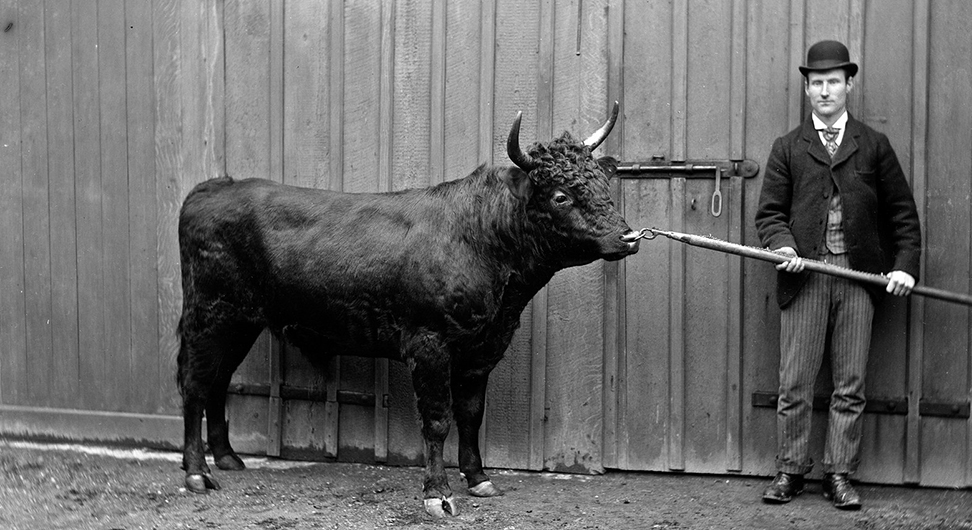The Seeker Part Eight: The Past is Everywhere
What Nathan remembered most about the guy conducting the interview was that he was a dick.
He and Charles had worked in different departments at the same company a decade before, the only overlap in the Venn diagram of their jobs being a weekly status meeting. One hour a week was plenty of time for Nathan to learn that Charles probably listed arrogance under Skills on his resume. The anecdotal evidence gathered from colleagues during bitch sessions at the brewpub near the office–people were comfortable talking freely about him because they knew Charles preferred the beer at Rock Bottom–repeatedly confirmed this impression.
Now Nathan wondered what Charles had thought of him ten years ago. He recalled Charles as a proponent of the LinkedIn school of communication: don’t say “use” when you can say “utilize”, and don’t say “increase revenue” when there’s room to say “implement and execute cross-functional channels to accelerate growth margins.”
Don’t say “increase revenue” when there’s room to say “implement and execute cross-functional channels to accelerate growth margins.”
As a copywriter, Nathan endured this communication style the way a professional musician appreciates a second-grade class on the first day of recorder lessons. He imagined that his own efforts to write concise, lucid copy must have seemed thoroughly unprofessional to someone who mistook verbosity as eloquence. Hopefully he was wrong.
“Nathan Raines,” Charles said as he extended his hand. “I haven’t seen you since, when, Chen’s going away party?” Chen was Amy Chen, who most people called Amy. Nathan remembered Charles made a big show about buying a round of drinks at her farewell happy hour, then groused about how many people had ordered mixed drinks instead of beers. He and Charles had actually worked together for another month after Amy left, but Nathan confirmed the question.
When they’d settled in across the desk from each other, Charles picked up Nathan’s resume, then immediately put it back down. “Have you maintained relationships with colleagues from that office?”
The question sounded like it had been crafted by Legal. If he meant remained friends, the answer was mostly no, but Nathan wondered if that would give the impression that he’d burned his bridges, which he hadn’t. It’s just easy to lose touch with people when your primary bond is a shared physical space and you’re no longer in that space. Nathan decided to accentuate the positives. “I have breakfast with Nancy Pearl now and then,” which was true, though now and then meant once a year, “and I keep in touch with Joel Brooks,” which was also true, because Joel was kind enough to answer Nathan’s naïve IT questions when his home computer had issues. “Otherwise, just on social media.” Nathan didn’t think he was connected to Charles on any networks, but he’d hidden so many ex-colleagues over the years that he couldn’t be sure.
Charles nodded. “I have 500-plus connections on LinkedIn, so 360-visibility is difficult. Not many of my first-levels are from that organization. The culture was sub-optimal for networking, don’t you think?”
Nathan got the feeling Charles expected an answer, so he considered his options. Interviewing 101 says you never disparage a former employer–if you can’t say something nice, say you wanted a new challenge–but Nathan wasn’t sure what the protocol was when the interviewer talked trash about your former company. Agreeing might give them some common ground to build on, but it could also be a set-up and he didn’t want to be the stupid fish that lunged at the bait. He opted for tact. “Most of my corporate jobs have been somewhat similar. Hopefully this place is an exception?”
“Well, the compensation structure is a significantly elevated.”
The Dunning-Kruger effect came to Nathan’s mind, that factor in incompetent people that prevents them from recognizing their own incompetence–did Charles even recognize his comment as an interview faux pas? He’d always heard that pay was a discussion for the offer conversation, not to be tossed out as an icebreaker. Since it wasn’t an actual question, Nathan didn’t feel compelled to answer. Instead, he tried to move the conversation forward. “Then let’s talk about this job. I’m curious, I thought you were an operations guy. Does the copywriter report to you?”
Charles nodded as he picked up the resume again. “They wanted my expertise in identifying enterprise-level synergies that generate client-focused initiatives and accelerate time to market. As you know, my experience…”
Nathan had stopped listening as soon as he saw the nod. If he couldn’t stand being around the guy for one hour a week, there was no use exploring what it would be like for forty. For the next 35 minutes, Nathan did his best to hear the few questions that popped out of Charles’ monologue, and answered each with ruthless economy. Mostly, he spent the time thinking about the two restaurants he’d passed on his way to the interview–the burger joint had great food, but the sushi place was cheap and delicious. He mentally scanned the menus as Charles droned on, and once he’d decided on sushi, his answers got even shorter.
By day, William Reagan is a mild-mannered marketing copywriter stealthily sneaking clever wordplay into the most corporate of collateral—but at night, he’s a creative mischeivian bent on taking the shortest possible path to profound truths and/or preposterous lies. (Still mild-mannered then, too.)
This work is licensed under a Creative Commons Attribution-ShareAlike 4.0 International License.


